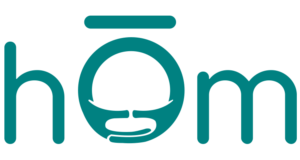The world is suffering deep loss in the wake of the COVID-19 pandemic. Since this all began millions have become infected, hundreds of thousands have passed, we are in the midst of a global economic disaster, and with this, all the suffering that accompanies it. Even if you yourself are not infected with this virus, even if you haven’t lost your business or your job, even if no one in your family is sick or has died, we have all been affected.
For almost everyone, there is anxiety, fear, and moments of experienced helplessness and hopelessness. We are confronted daily, through the news and social media, with documented losses in painful and visible detail. What we don’t often see or consider is that for almost everyone, there are also invisible losses.
It is true that many have already died, while the majority will not. It is true that some have lost everything, while some will only know the greatest suffering second-hand. Many of us are being hurt by what is happening in our world, as well as by what has not yet happened. Indeed, there is pain and loss even in what we escape.
For some, there is guilt about not using the “time off” in lockdown “productively” to learn how to bake bread, speak a new language, exercise more, start a new project, finish an old project, or be a better parent. Professional caregivers who are not working alongside their colleagues on the frontlines might be feeling guilt and even shame about not “doing their part”, not pushing themselves to the brink, or even dying for the cause.
Some of us may even be experiencing an invisible but well-documented emotional response of unconscious survivor guilt – or the perception that we have fallen short of our natural sense of responsibility for the lives of others. Rumination and worry are exaggerations of thoughtful self-reflection, and contribute to feelings of unease, anxiety, and depression we might be experiencing. This can distort the natural sadness and grieving that are inherent in our humanity and can even rob us of moments of joy and delight in our own present moments of precious living.
So what do we do? How do we skillfully address all of these things that may be coming up for us? Though we may have heard this time and time again, it remains true: recognize your feelings are normal (and common); acknowledge, honor, and make space for what you’re experiencing right now; give yourself permission to take a break; let yourself find moments of peace, feelings of safety, connection, and joy; they can be valuable treatments for the wide world of pain and suffering.
Ultimately, be gentle with yourself. Be compassionate to yourself for the losses that anyone might see in your life, for the invisible suffering only you can feel, and for your place in the misery of what the world is experiencing in a million inexplicable ways.
Whether on the frontlines or the sidelines, kindness and taking care of yourself allow you to be compassionate and hold space for others and their suffering. Kindness and self-care, most of all, allow us to see the sacrifices and contributions that we and so many are making and to feel our connection to all humankind.
A poem about what we can and cannot do
On March 17, as sheltering-in-place was starting, poet Jane Hirshfield wrote this poem,
“Today, When I Could Do Nothing.”
Today, when I could do nothing,
I saved an ant.
It must have come in with the morning paper,
still being delivered
to those who shelter in place.
A morning paper is still an essential service.
I am not an essential service.
I have coffee and books,
time,
a garden,
silence enough to fill cisterns.
It must have first walked
the morning paper, as if loosened ink
taking the shape of an ant.
Then across the laptop computer-warm-
then onto the back of a cushion.
Small black ant, alone,
crossing a navy cushion,
moving steadily because that is what it could do.
Set outside in the sun,
it could not have found again its nest.
What then did I save?
It did not move as if it was frightened,
even while walking my hand,
which moved it through swiftness and air.
Ant, alone, without companions,
whose ant-heart I could not fathom-
how is your life, I wanted to ask.
I lifted it, took it outside.
This first day when I could do nothing,
contribute nothing
beyond staying distant from my own kind,
I did this.
Blog post adapted from: https://meri.ucsf.edu/blog/invisible-losses-secondary-trauma-survivor-guilt-and-moving-through-covid-19-crisis
Additionally, here is a link to a wonderful resource created by Shine to help us care for our Coronavirus anxiety:
